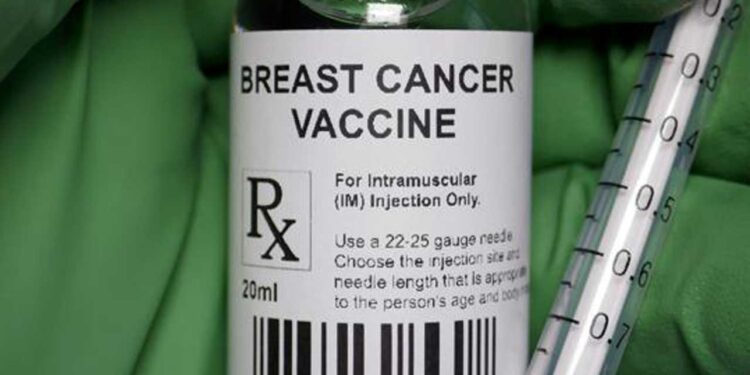A significant funding boost will allow University of Washington researchers to expand their experimental breast cancer vaccine trial, potentially advancing prevention strategies for one of America’s most common cancers.
The Cancer Vaccine Coalition, partnering with the V Foundation, awarded $500,000 to UW Medicine’s Cancer Vaccine Institute to increase trial enrollment from 16 to 25 patients. The funding targets research into preventing breast cancer recurrence through immune system training.
Dr. Will Gwin, medical oncologist and assistant professor at UW, reports encouraging preliminary results from the current cohort. The trial focuses on patients with recently diagnosed stage one through three HER2-positive breast cancer, combining an experimental vaccine with standard chemotherapy and targeted therapy.
“We’re integrating our vaccine within standard therapy to boost a strong, cancer-killing immune response that attacks current cancer while preventing future recurrence,” Gwin explained.
The approach represents a shift toward harnessing the body’s natural defenses rather than relying solely on toxic treatments. Researchers hope to create lasting immunity that recognizes and eliminates cancer cells before they can establish tumors.
Kristen Dahlgren, Cancer Vaccine Coalition founder and former NBC correspondent, brings personal perspective as a cancer survivor. Her organization funds trials directly to accelerate research timelines that might otherwise span decades.
“These vaccines train immune systems, providing blueprints to identify and eliminate cancer cells should they appear,” Dahlgren said. For survivors, the technology offers potential freedom from recurrence anxiety.
The research addresses a significant health challenge. Breast cancer affects more than 280,000 Americans annually, making prevention strategies particularly valuable for public health outcomes.
UW’s work exemplifies Seattle’s position as a biomedical research hub, where institutions leverage federal and private funding to advance cancer treatment options. The expanded trial will provide additional data on vaccine efficacy and safety profiles.
Success could fundamentally alter cancer care by shifting focus from treatment to prevention, potentially reducing both patient suffering and healthcare costs associated with advanced disease management.







